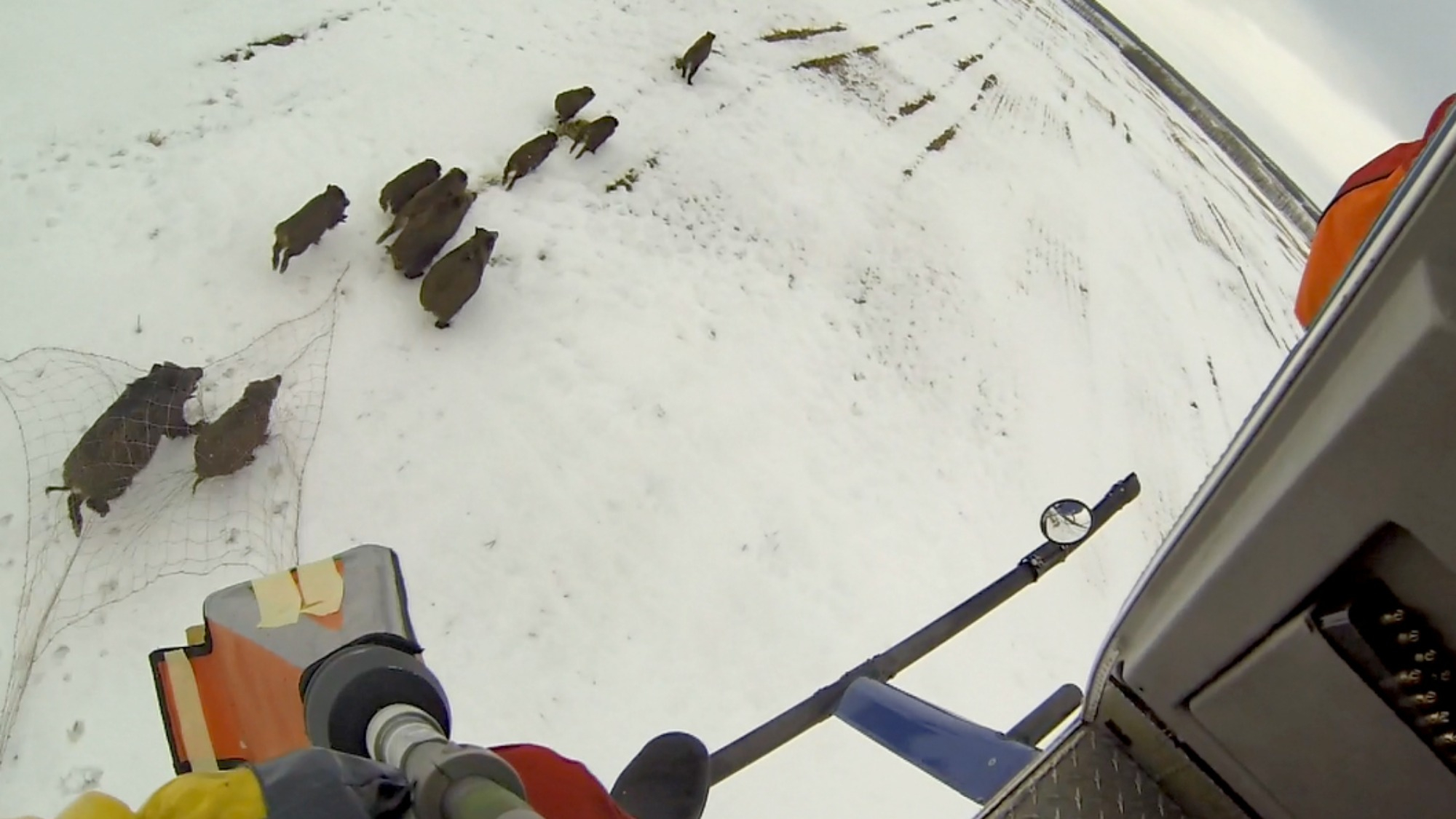

This article was originally featured on Field & Stream.
In January, Field & Stream reported on a startling population explosion of invasive pigs in Canada’s Praire Pothole Provinces. According to Dr. Ryan Brook, the leader of the University of Saskatchewan Canadian Wild Pig Research Project, the swine are blends between wild and domestic pigs prompting him to call them “super pigs.” After escaping or being released from enclosures, the pigs have managed to thrive despite the cold climate—and are threatening to invade the northern U.S.
Related: Colombia Struggles to Control Exploding Population of Over 100 Invasive Hippos
Dr. Brook recently spoke at length with Field & Stream about his research and the vast array of worrying consequences the feral hog proliferation could have. But sometimes you just have to see it to believe it. These charts from the Canadian Wild Pig Research Project illustrate the shocking invasion happening up north right now.
A Nation-Wide Incident Map
Canada’s invasive pig problem is relatively recent, unlike the one in the southeast U.S. Before 1995, there were hardly any occurrences of feral pigs. That all changed when the market for farmed boars dropped out in the early 2000s. This short video shows a contagion of red indicating wild pig sightings quickly spreading throughout Canada in the last 30 years.

A More Detailed Map
Pinpointing populations of invasive pigs is paramount to mitigating their spread. That’s why Dr. Brook and his team recently put together a detailed map of wild pig occurrences in Canada. “[The] reality is still that outside of the Prairie Provinces of Alberta, Saskatchewan, and Manitoba, there are no meaningful opportunities to hunt wild pigs, which is not allowed in Ontario and Quebec,” wrote the Canadian Wild Pig Research Project in a Facebook post. “There are a little over 54,000 points here—more than half in Saskatchewan.”
City Pigs?
Dr. Brook is currently tracking a population explosion of “super pigs” in close proximity to Edmonton. Could feral pigs invade the city itself? Hopefully not. But there has already been one occurrence within city limits, and another right on the outskirts. “Please tell me that we won’t have wild pigs in Canadian cities,” wrote Dr. Brook in a Tweet.
Super Pigs Caught on Camera
Dr. Brook and his team rely on a network of trail cameras and reports from citizens to track the spread of wild hogs in Canada. This has helped them get an idea of where they like to be—and it’s no surprise that they often gravitate to farms. “If you are looking for wild pigs these days, remember that corn is king,” wrote the Canadian Wild Pig Research Project in a Facebook post.” If there is any standing corn crop in areas that have wild pigs, then that’s a good first place to look. The amount of standing corn left for winter cattle grazing has increased in many areas and pigs really like it. Corn provides great hiding cover and food value.”
The Final Word on Canadian Super Pigs
These graphics all illustrate an unfortunate reality: Invasive pigs have successfully managed to establish populations in Canada, particularly in Manitoba and Saskatchewan. And they’re there to stay. According to Dr. Brook, total eradication is no longer possible—but preventing the spread of Canadian super pigs is still important. People in Canada and the northern U.S. should report any sightings of feral pigs to their local conservation officers and to the Squeal on Pigs program.